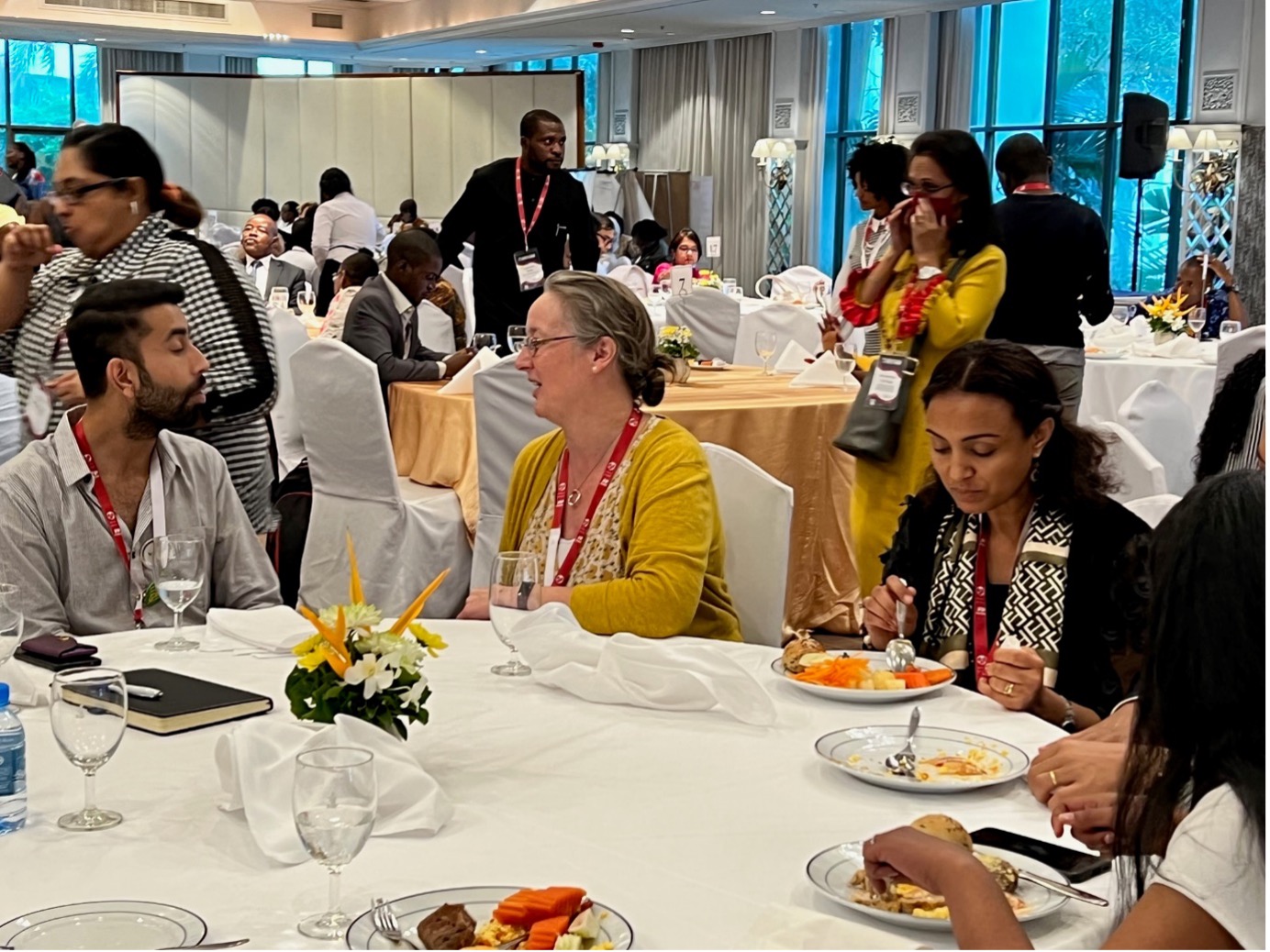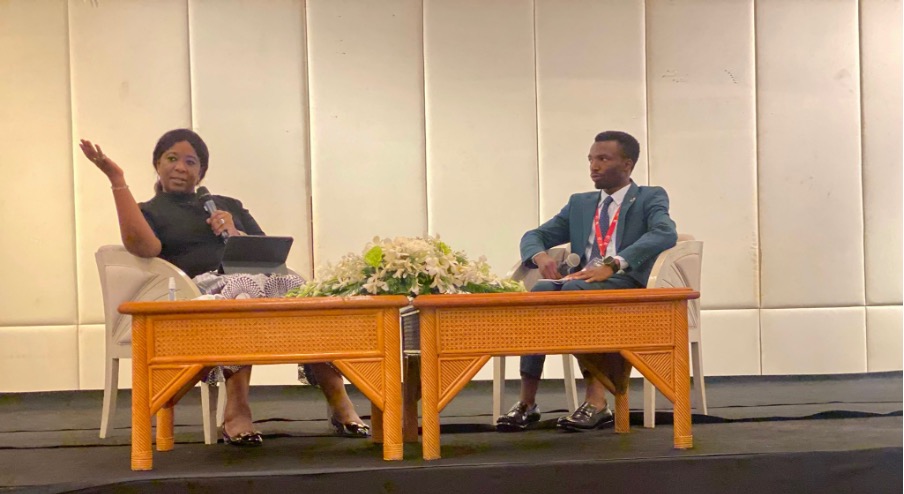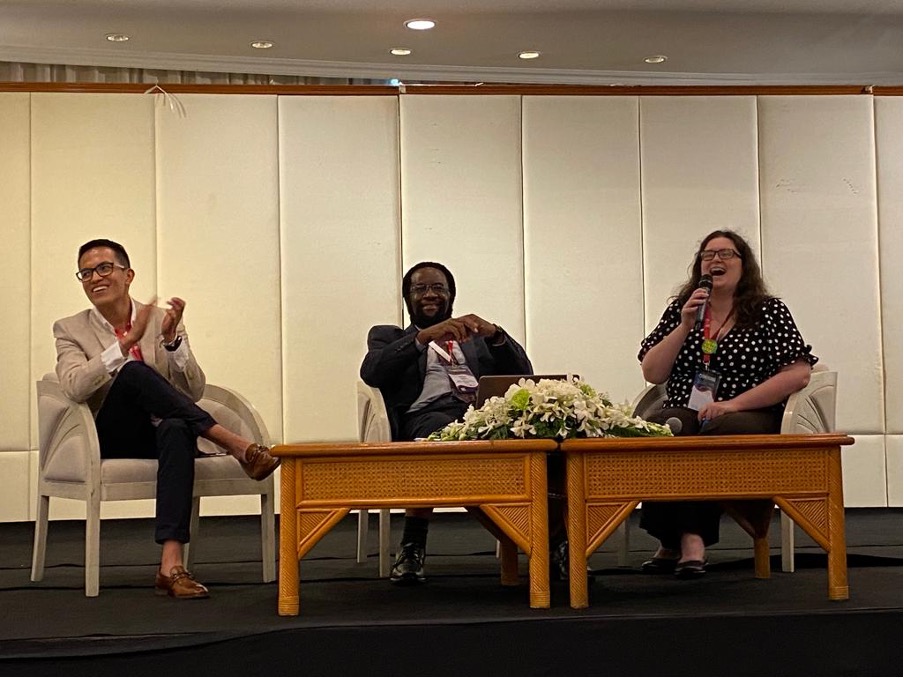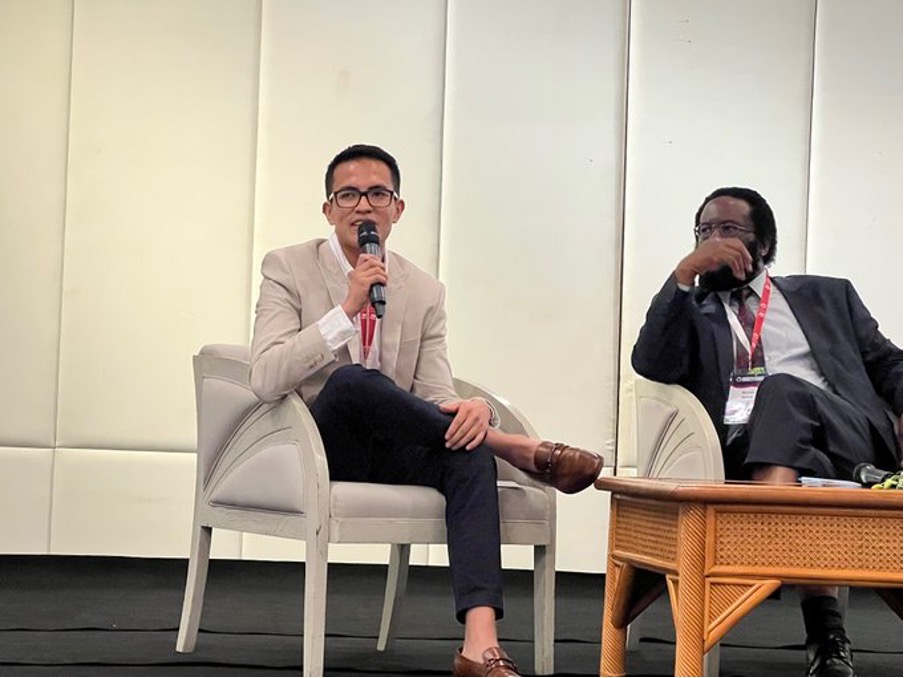
Youth inclusion, youth leadership and youth innovation; these are vital if the world is to adequately meet the sexual health and reproductive rights (SRHR) needs of young people and go on to achieve universal health coverage (UHC) by 2030, said experts at the Lunch for Leaders: An Intergenerational Dialogue, which was hosted by PMNCH at the International Conference of Family Planning in Pattaya, Thailand, on 14 November.
"For too long, their multidimensional and holistic [needs] have been largely invisible," said Michael Mbizvo, Director of the Population Council's office in Zambia and a senior associate in the Reproductive Health program. "We need to be responsive to the needs of young people in terms of what they want. That means we’ll have to see and hear the voices of young people and respond accordingly."
There are currently over 1.8 billion adolescents and youth in the world today – the largest number on record. Those aged 15−19 years old account for 14% of the world’s maternal deaths, 1 in 4 adolescent girls lack access to contraception and an annual 3.9 million undergo an unsafe abortion each year.
This event – acting as a precursor to the 2023 Global Forum for Adolescents – set out a variety of short conversations between agency lead, youth-led NGOs and young people before sparking 10- minute table break- out sessions on what is missing when it comes to SRHR and family planning services for young people and how UHC might be achieved by 2030.
"How can I talk about sexual health in my conservative country?" "How can these discussions be advanced when those under 18 aren’t even allowed in the room?" "How much progress can be made when we keep referring to youth as a homogenous group?" "What about those who are hard to reach?" These were some of the concerns to come out of the discussions between the approximate 350 youth delegates, SRHR leaders, parliamentarians and ministers in attendance.
But the event wasn’t without its suggested solutions.
How to improve SRHR access for youth and achieve UHC

Diene Keita, the United Nations assistant secretary general and deputy executive director of UNFPA, called on governments to make sure they have enough youth-friendly health centres, for donors to ensure those services have all the necessary commodities and for young people to engage with authorities so their rights and wants are embedded in national plans.
"For me, it’s about how to empower young people to know what their rights are on SHRH because when they know that at least we can make some steps to move forward and start the conversation at different levels," she said, adding that from there millennials should teach the generation behind them, Generation Z, and "help them grow."

Following ICFP’s pre conference for youth at the weekend, Lucy Fagan, social policy officer of the Major Group for Children and Youth, shared that the conclusions were the importance of strengthening mechanisms for engagement and accountability that recognizes the diversity of young people and the intersectionality.
She also highlighted the importance of capitalising on opportunities that the digital age brings for navigating and claiming rights and the need to invest more in adolescent SRHR services.
"But that money needs to trickle down to us, to youth-led organisations; many of us are already delivering change on the ground and access to information, services and peer services. Access to agile and sustainable funding can allow us to do our work and do it right," she said.

Policymakers should ask their constituents what young people want, work across sectors including WASH education and adopt a comprehensive approach to adolescent well-being, said David Imbago, YIELD Hub manager and chair of the Adolescents and Youth Constituency at PMNCH.
"It’s an opportunity for you to think about conditions and partnerships that will last for many years," he said to policymakers.
"We want our rights, we want accountability, and we want to be your equal partner on this journey together for SRHR and we want change now," Fagan echoed.

.png?sfvrsn=6d0e27cd_1)



